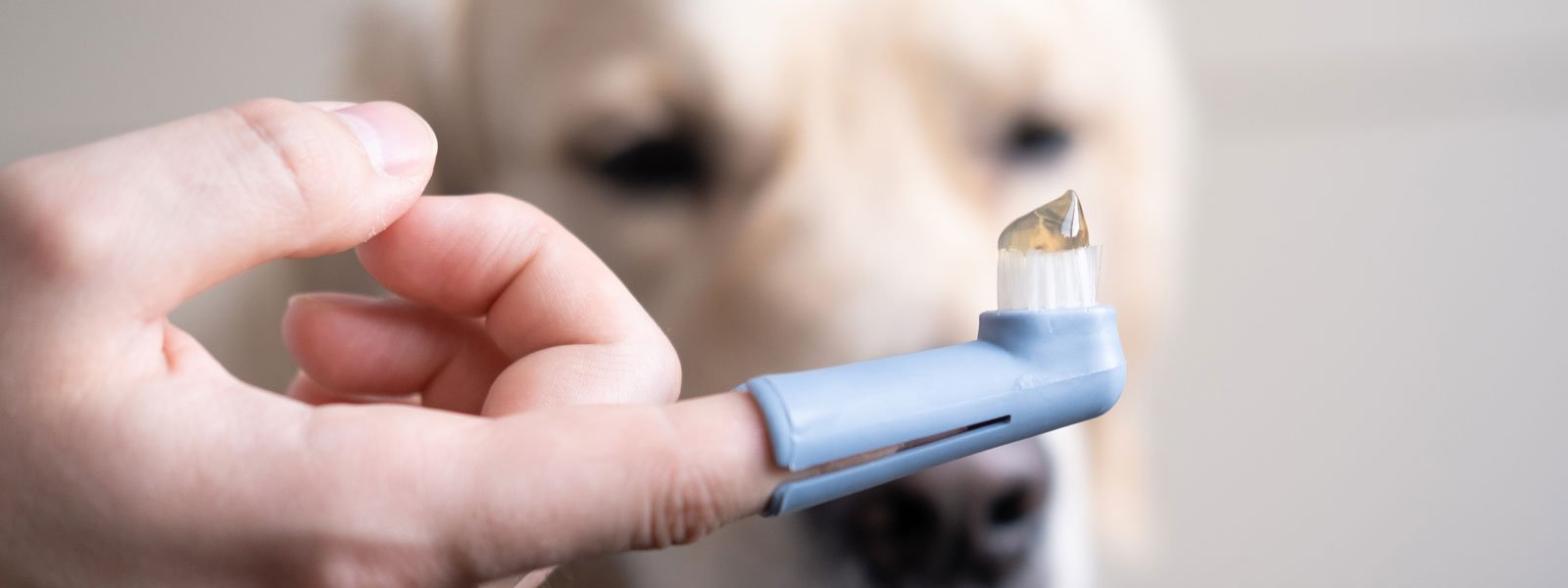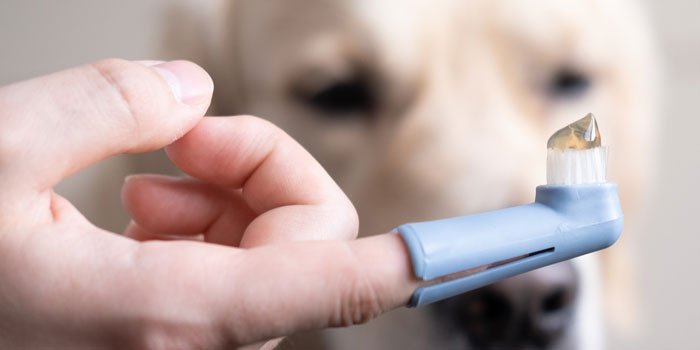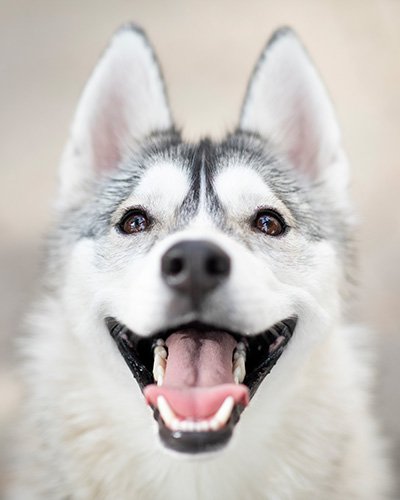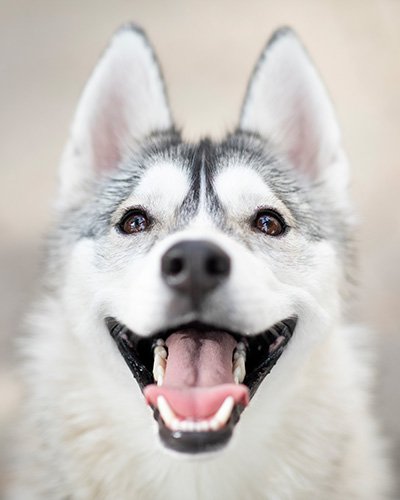Subtotal :
Checkout using your account
This form is protected by reCAPTCHA - the Google Privacy Policy and Terms of Service apply.
Checkout as a new customer
Creating an account has many benefits:
- See order and shipping status
- Track order history
- Check out faster
Dental care for dogs – the whole tooth and nothing but the tooth


Article by veterinarian Sanja Polz
Do you have to brush your dog's teeth? No, you don't have to. But it is a very good idea if you want them to keep their teeth for a long time and have a healthy and pain-free dog. Studies in the USA have found dental problems in more than three quarters of dogs over the age of 3. That's a lot! If your pet’s teeth chatter or they are developing bad breath, it is high time to have their teeth checked by a vet.
Brushing your dog's teeth – when and how often?
Dental health starts from puppyhood. Just like us humans, dogs have milk teeth. These usually fall out within the first 6 months of life. Nevertheless, it pays to get your dog used to having their teeth brushed when they are still a puppy. As the saying goes, "you can't teach an old dog new tricks"! The vexed question often arises, how often do I have to brush my dog's teeth? The good news is, brushing their teeth once a day is usually enough. Just three times a week can reduce tartar by up to 70%. So if you brush your furry friend's teeth regularly, you have the best prevention against dental problems in your pocket.
Again and again I am asked: but what about the ancestors of our dogs, the wolves? Did they have their teeth brushed? Of course not, but they ate a slightly different diet than our dogs do today. The daily tearing into prey, biting through fur, fat, bones, tissue and guts was the natural toothbrushing for wolves.
Dog chews to avoid or remove tartar
Dogs' teeth can be cleaned naturally, with the help of chewing bones, chew sticks and chew toys. Chewing produces a mechanical abrasion of plaque and stimulates the flow of saliva. Both help to clean their teeth. The longer they chew, the better for their dental care. As a rule of thumb, dogs should chew for at least 20–30 minutes to best benefit from the positive effects – preferably daily! You can also purchase special dry food with larger kibbles that have a structure and composition designed to remove plaque and reduce tartar. But even if we give our furry pet a chew bone every day, it is clear that there is a big difference between him and a wolf. Hence, the need to help things along with a toothbrush.


Beware of gum disease
Unlike humans, dogs hardly ever get tooth decay. They are more prone to tartar, which leads to gum disease and inflammation. An adult dog has 42 teeth. No matter how big or small the breed, they all need something to chew with! It soon becomes clear that space is tight in smaller mouths. That is precisely what causes a significant limitation: the lack of space between teeth. So, if misalignments and space problems are present from birth, natural cleaning will not be enough. They must be cleaned, otherwise severe gum disease and tartar will appear after only a few years. Once this happens, the tooth has to be extracted under anaesthesia and the dog has one less chewing tool.
Unfortunately, many small breeds often need to have a number of teeth extracted as they get older. Even with regular cleaning and dog chews, genetic disposition is unfortunately working against all efforts.
The right food for dental problems
It benefits us that our pets do not have to hunt for their food like wolves, but can find portioned morsels in their bowls. Dogs that no longer have teeth can still eat wet food without any problems. They can simply mash the food against the roof of their mouths. It does not need to be chewed for our furry friends to digest it.
Anyone who has a Labrador or a similarly voracious dog at home knows this only too well. Even if teeth are present, they often gobble the food down so quickly that it barely comes into contact with their teeth, let alone chewed. If a dog that no longer has teeth refuses wet food, it can be fed dry food. Stomach acid is strong enough to digest even unchewed food.


Our Expert
Sanja Polz , BVetMed MRCVS CCRP
Veterinarian Sanja Polz supports us at DOG'S LOVE and CAT'S LOVE with her expertise. After completing her studies at the Royal Veterinary College, London, she went on to receive in-depth specialist training at home and abroad. Meanwhile, Sanja has been running her own practice, CityVet, in Vienna for several years.





